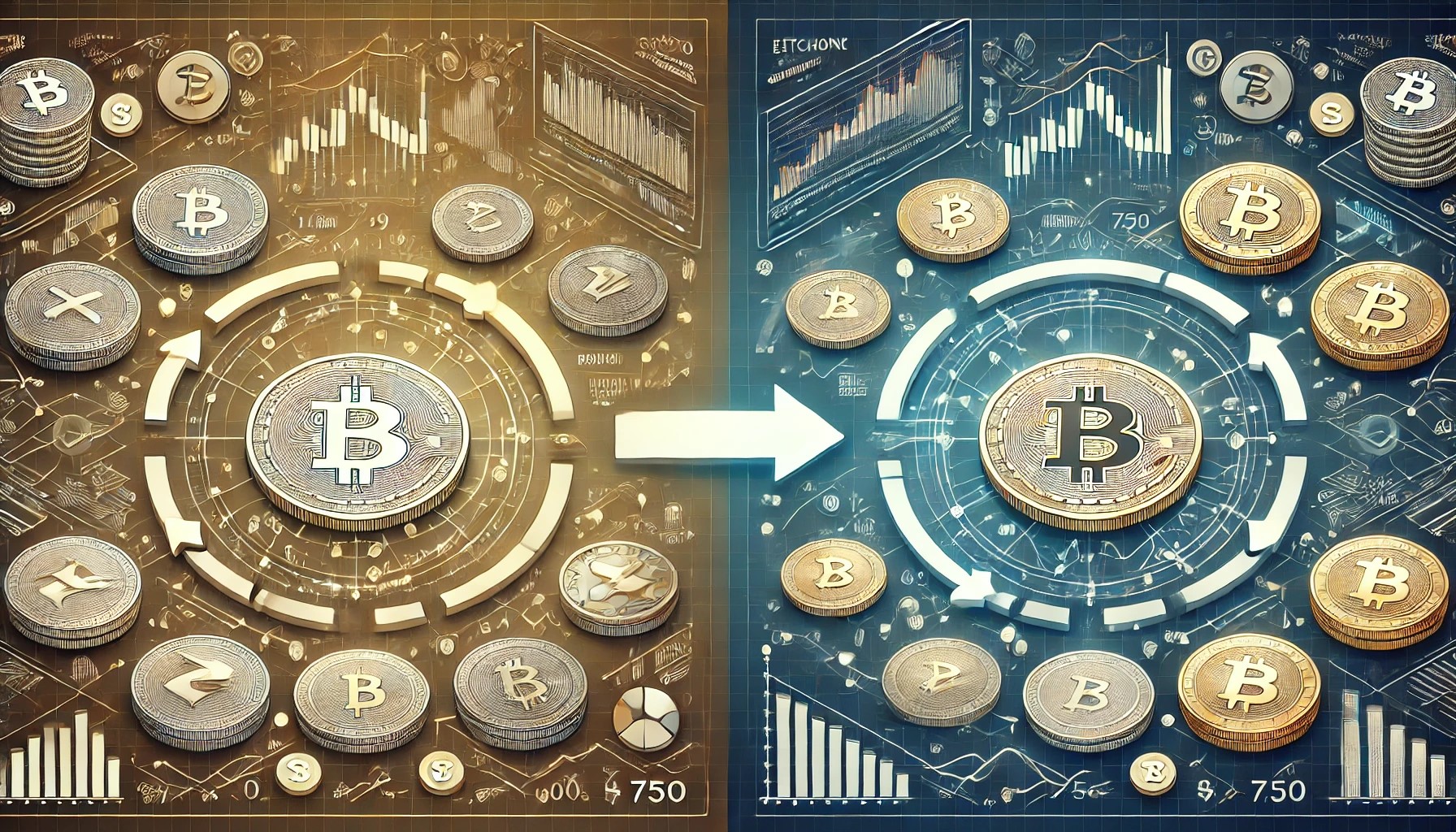The digital age has seen a tremendous increase in the popularity and use of cryptocurrencies, revolutionising the way we think about money and transactions. With this surge in use comes a need to understand the various methods available for managing these digital assets, particularly the concepts of ‘crypto swaps’ and crypto exchange. These terms are crucial for anyone looking to navigate the increasingly complex world of digital finance. For those seeking to deepen their understanding of these concepts. This article aims to demystify these terms, highlighting their differences, uses, and impacts on the everyday crypto enthusiast.
This integration offers an informational tone, positioning the platform as a resource for expanded knowledge without promoting it directly.
Understanding Cryptocurrency Transactions
Cryptocurrency transactions are fundamentally about the transfer of digital currency values between parties. Think of them as online financial exchanges without the physical exchange of money. Here, digital “tokens” representing currency or assets change hands, powered by blockchain technology—a secure, transparent way to record transactions without needing a central authority.
What is a Crypto Swap?
Definition and Mechanism
A crypto swap is essentially a direct exchange of one cryptocurrency for another. This process bypasses the traditional method of going through a central currency, making it faster and often more cost-effective. For example, if you want to trade Bitcoin for Ethereum directly, a crypto swap allows you to do so without first converting Bitcoin to USD or another fiat currency.
Key Points:
- Direct Transaction: Swaps convert one cryptocurrency directly to another.
- Cost Efficiency: Minimal transaction fees as it cuts out middle currencies.
Benefits of Crypto Swaps
Crypto swaps appeal particularly to those who value speed and efficiency. They offer a streamlined approach to trading, often with lower fees since they eliminate the need for intermediary currencies. Furthermore, swaps can be completed on decentralized platforms, enhancing security and reducing the risk of censorship or control by a central authority.
Real-world example: Using a platform like Uniswap, a user can swap their existing Ethereum tokens for another decentralized finance (DeFi) token like DAI within minutes, directly from their digital wallet.
Challenges and Considerations
However, crypto swaps are not without their challenges. They can suffer from lower liquidity—meaning there might not always be enough of the crypto you want available to make a swap at your desired time. Additionally, the price slippage can occur in larger transactions, where the actual price of the swap can change between the time the transaction is initiated and when it is executed.
What is a Crypto Exchange?
Definition and Mechanism
Crypto exchanges are more structured platforms where cryptocurrencies are bought and sold. Unlike swaps, exchanges involve trading pairs and can include fiat currencies as well as cryptocurrencies. They function much like traditional stock exchanges, providing a marketplace for buying and selling, with prices determined by market supply and demand.
Types of Exchanges
Centralized Exchanges (CEX): These are managed by a single company providing a trading platform, such as Coinbase or Binance. They are known for high liquidity and faster transaction speeds but come with increased security risks as they control the user’s funds.
Decentralized Exchanges (DEX): Platforms like EtherDelta operate without a central authority, giving users full control of their funds and transactions, which are facilitated directly between users through an automated process.
Benefits and Drawbacks
Exchanges provide a more traditional trading experience, with features like real-time price charts and more extensive market liquidity. However, they can be more complex to use and often involve higher fees than swaps. Security is also a concern, particularly with centralized exchanges, which are more susceptible to hacks.
Comparative Analysis
Transaction Process and Speed
When comparing the speed of crypto swaps and exchanges, swaps generally lead due to their straightforward, no-middle-man approach. On decentralized platforms, swaps occur almost instantly once agreed conditions are met by the trading parties. For instance, a swap on a platform like Uniswap can be completed in less time than it takes to log into a centralized exchange platform.
Exchanges, on the other hand, can sometimes delay transactions due to more complex trading mechanisms and the need for order matching. This becomes particularly noticeable during high volatility periods when transaction volumes can overwhelm systems.
Fees and Costs
Swaps excel in the area of cost-efficiency. They usually entail lower fees because they operate on automated protocols that require minimal human intervention and overhead. This streamlined process not only speeds up transactions but also cuts down on costs, which can be particularly advantageous for frequent traders.
Exchanges might charge a range of fees including trading fees, withdrawal fees, and others, depending on the currency pair and the type of trade. These costs can accumulate, especially for active users who engage in multiple transactions. Centralized exchanges, while offering more trading options and higher liquidity, often include a fee for these advantages.
Security and Privacy
Security is paramount in any financial transaction, and here, crypto swaps have an edge due to their use of decentralized platforms where no single point of failure exists. These platforms do not hold user funds, thus reducing the risk of major hacks that centralized exchanges might suffer from.
However, exchanges have been improving their security measures, with leading platforms incorporating insurance policies that protect user funds in the event of a breach. Yet, the very nature of centralization means they will always have inherent vulnerabilities.
User Experience and Accessibility
For new users, the straightforward interface of crypto swaps might be more appealing. These platforms often feature simple, intuitive designs that facilitate quick transactions without the clutter of advanced trading tools.
Exchanges provide a comprehensive trading experience but can be intimidating for beginners due to their complex interfaces that offer detailed analytical tools and extensive market data. For seasoned traders or those looking to engage deeply with the crypto market, exchanges provide a robust platform for engaging with a variety of trading strategies.
Conclusion
While both crypto swaps and exchanges offer valuable services to the cryptocurrency community, they cater to different needs and preferences. Swaps are best suited for those seeking quick, straightforward transactions with minimal fees, whereas exchanges appeal to users desiring in-depth market analysis and diverse trading options. Understanding the nuances between these methods allows users to make informed decisions, enhancing their engagement with the world of cryptocurrency trading. As the digital finance landscape continues to evolve, so too will these platforms, adapting to the needs of a growing and increasingly sophisticated user base.
FAQs
Crypto swaps tend to be safer as they often use decentralized platforms, reducing the risk of hacks associated with centralized exchanges.
Crypto swaps generally provide quicker conversions between cryptocurrencies, especially on decentralized platforms.
Swapping usually incurs lower fees compared to exchanging due to the absence of intermediaries and simpler transaction processes.
Yes, users can choose between swapping and exchanging based on their transaction needs. Many platforms offer both options.
Beginners looking for simplicity and quick transactions may prefer swaps, while those interested in detailed market analysis might opt for exchanges.

